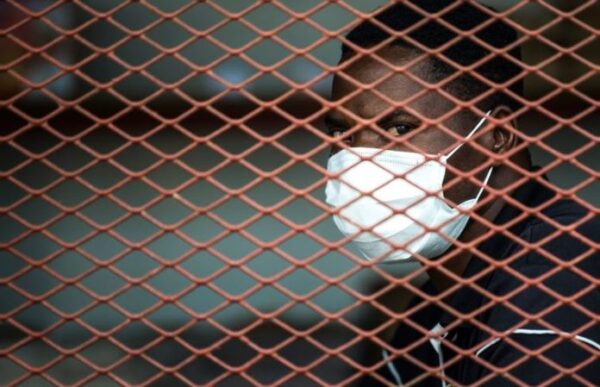PBS: Escaping Eritrea … [Read More...] about ካብ ውሽጢ ቤት ማእሰርታት ኤርትራ
The coronavirus and Africa: Exposing our vulnerabilities and inequalities
Ayesha Jacub | 22 Mar 2020 | Mail & Guardian
As Africans we are no strangers to large-scale human loss. Memories of the HIV epidemic weigh heavily on our collective psyche. We remember what it was like to lose large groups of our community to a virus while the world scrambled to find treatments. Our doctors know how health systems and staff can crumble under the pressure of having to provide care. Then came antiretrovirals and we allowed ourselves to take a collective deep breath. We weathered the global storms of H1N1 and SARS (severe acute respiratory syndrome). Then there was Ebola, and it was a grim picture that West Africa presented the rest of the world.

A fatalist could say that this is our cross to bear and that we must persevere. The reality is that nature will do what she has to do, but humans have choice. How we are placed to cope with pandemics and disease is a consequence of priorities, policy and leadership.
During and after the Ebola epidemic, there was a recognition that regional co-ordination was needed and the Africa Centres for Disease Control and Prevention was established with international funding. On paper it looks promising, committing to support countries in many areas including surveillance and disease intelligence, information systems, and public health research. Although a regional co-ordinating body such as this one is essential, the reality is that when policy moves down to a national level, fault lines become very evident.
President Cyril Ramaphosa’s address last week ticked all the right boxes including calling for the appropriate travel bans, social distancing and school closures. In terms of public relations, Ramaphosa delivered — cutting a strong leadership figure and making timely and decisive calls. The irony is that this type of decisive leadership is exactly what’s needed during inter-epidemic times to secure the very building blocks that aren’t in place now, the lack of which will severely expose our vulnerabilities as coronavirus hits our society.
South Africa’s fault lines
Many of our fault lines hinge on inequalities, ranging from the economic to health systems. Policy is only as good as its implementation and it’s not pessimism to wonder how social distancing and adequate hygiene can occur in a country in which about 13.6% of the population live in informal settlements, where overcrowding is rife and access to adequate water and sanitation is not secure.
Those people with contract jobs may have some security and financial buffering during these uncertain times but with an estimated 20% of total employment falling within the informal sector, staying home with paid sick leave is not an option, making social-distancing calls unrealistic (but not unimportant). With a large proportion of South Africa’s population commuting using public transport and private minibus taxis, which are usually packed to capacity, effective social-distancing becomes a practical challenge.
During the best of times, South Africa’s public health system is strained to capacity. The public-private gradient means that financial and human resources are unevenly spread, in favour of the smaller, more affluent societal grouping. The proposed National Health Insurance is meant to address this issue — and provide redress — but it remains to be seen whether the specifics around policy, roll-out and implementation will truly favour health equity. It’s only through quality and equitable health services that we will have fewer medically vulnerable populations when it comes to pandemic vulnerability and morbidity and mortality.
The pathways by which poor health services create economically vulnerable populations are multiple. It is these economically vulnerable populations who face increased risk due to the primary and secondary effects of pandemics.
The coronavirus will not be the last pandemic that Africa will have to contend with. As a consequence of accelerated globalisation, humanity will have to prepare itself for intermittent disease outbreaks in the future.
Even the best infectious control response is still a reactive measure. In addition to multisectoral pandemic preparedness, a more equitable society will mean that there will be fewer vulnerable and at-risk populations. A society and policies based on social justice and social solidarity would mean that when future pandemics do occur, fewer people would become vulnerable.
Ayesha Jacub is a medical doctor and global health policy analyst. She previously worked in the South African public health system and is now based in Istanbul.
